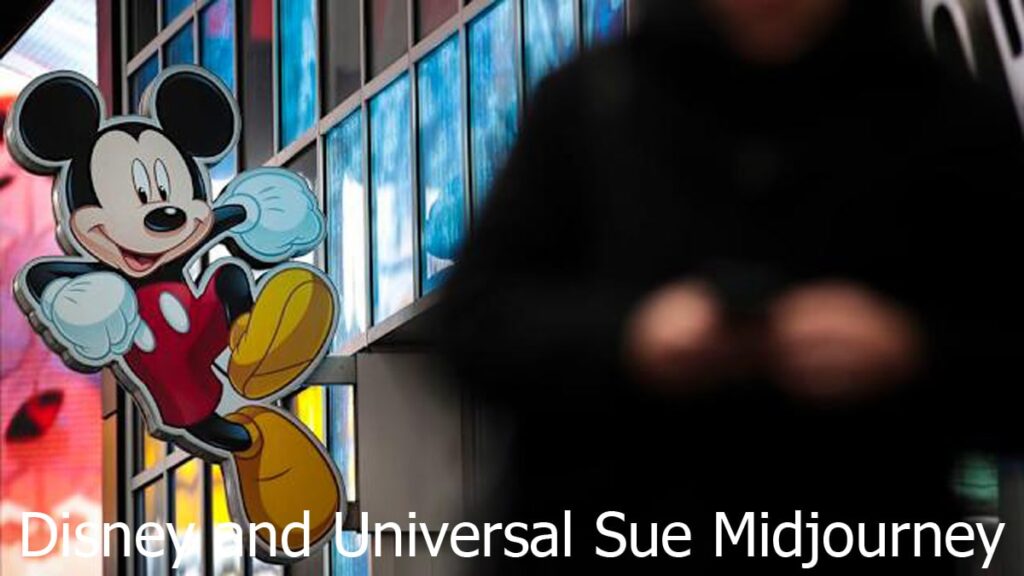Two entertainment industry giants, Disney and Universal Pictures, have officially filed a lawsuit against Midjourney, an AI-based image generator, accusing the company of copyright infringement involving their iconic characters. This lawsuit marks a new chapter in the global conflict between creative industries and generative AI technologies, highlighting the legal and ethical boundaries of intellectual property use in the digital era.
Allegations of Large-Scale Visual Plagiarism
In a 110-page legal document filed in the U.S. The plaintiffs accuse Midjourney of “unauthorized appropriation” of thousands of photos of well-known figures before a federal court in Los Angeles. These images, the lawsuit claims, were used to train the AI model without license or consent. The AI-generated outputs are described as “digital replicas,” not transformative works.
According to reports, the AI was able to replicate characters such as Spider-Man, Elsa from Frozen, Darth Vader from Star Wars, and Minions from Despicable Me using only text cues. According to Disney and Universal, this opens the door to mass plagiarism under the guise of technology.
Potential Legal and Commercial Implications
Disney emphasized that while they support technological innovation, it must not come at the expense of creative rights. “Piracy is still piracy, even when committed by a smart machine,” said Horacio Gutierrez, Chief Legal Officer at Disney, in an official statement. Universal added that the commercial use of copyrighted works by AI systems must comply with existing intellectual property laws.
The lawsuit demands damages of up to $150,000 USD per infringement, and also seeks a court injunction to halt Midjourney’s unauthorized use and development of any technology trained on their assets—including an upcoming AI video feature reportedly in development.
What Is Midjourney and How Does It Work?
Midjourney is a San Francisco-based startup that creates text-to-image generative AI. By inputting a text description, users can generate realistic or stylized digital artwork within seconds. The platform has gained popularity for producing illustrations that resemble professional artwork.
However, to achieve this level of sophistication, AI models like Midjourney are trained on billions of images from the internet—often without permission from the original creators. This is the core legal issue: whether such practice can be justified under the “fair use” doctrine or constitutes copyright infringement.
Legal Experts: A Potential Landmark Case
Experts suggest this lawsuit could become a landmark case in the age of AI. Professor Shubha Ghosh of Syracuse University noted that if Midjourney merely replicates copyrighted characters with minimal alteration, it will be difficult to justify under fair use.
Copyright attorney Randy McCarthy added that the legal challenge goes beyond image rights—it also raises questions about how we define “creativity” in the context of AI. “Is the result of AI a clever imitation or an original work? ” he asked.
The Creative Industry at a Crossroads
This lawsuit sends a strong warning to other AI companies that use publicly available data to train their models. In recent months, several organizations—from The New York Times to Getty Images—have filed similar lawsuits against AI developers.
The final ruling in the Disney-Universal vs. Midjourney case is expected to have wide-reaching effects, not only on technology companies but also on artists, illustrators, and digital content creators worldwide. It represents a major legal test of how society will regulate rapidly advancing AI systems that outpace current legislation.





